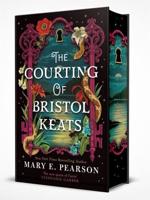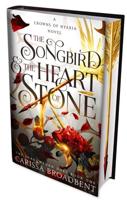Publisher's Synopsis
A younger version of Daddy Warbucks meets the female version of Eugene Debs, and mayhem (and love) ensues. An uptight girl meets a working-class boy who's made his fortune, and mayhem (and love) ensues.Two way different stories, right?Wrong. These seemingly polar opposite scenarios both describe what happens in North and South when Southern (southern England, that is) belle Margaret Hale encounters Northern self-made man John Thornton. Three hundred pages, multiple deaths and some fierce social commentary later, they realize that okay, yes they do like-like each other.Let's get back to that "fierce social commentary" part. Because if anyone deserves to be called fierce, it's Elizabeth Gaskell.When it was first published in 1854, North and South was met with some pretty harsh criticism. Its editor, the super famous Charles Dickens, said the story was way longer than it needed to be. But more criticism was directed at the fact that Elizabeth Gaskell (a woman!) dared to write sympathetically about the rights of English workers. Even right up until the 1930s, critics' main view of Elizabeth Gaskell was that she "makes a creditable effort to overcome her deficiencies [as a woman] but all in vain". Yeesh. Sexist much?North and South is all about challenging authority, especially when authority tries to work against compassion and justice. Margaret Hale constantly steps beyond her boundaries as a woman in Victorian England. Her brother challenges authority by disobeying his commanding officer in the navy and causing a mutiny. The laborer Nicholas Higgins organizes workers' strikes and insists on the rights of workingmen. Anywhere you look in this book, you'll find someone fighting the power. And that was something that the stuffy Victorians were really not into. And because of this, they totally thought that North and South would be forgotten over time.But more than a century and a half later, North and South is anything but forgotten. It endures because of its class-consciousness and its interest in labor issues. It also endures because of it contains insane family drama, a cast of memorable characters, and an awesome, Pride and Prejudice-style romance. North and South been adapted twice as a miniseries, the first time with Patrick Stewart (!) playing the role of John Thornton. Hey, when Jean Luc-Picard is on board, so are we.























